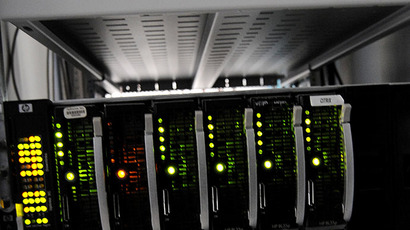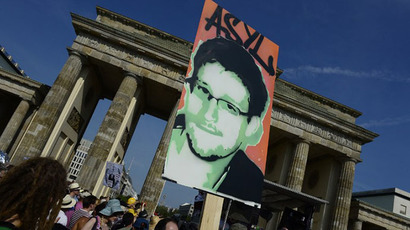NSA spied on Brazil, Mexico presidents - Greenwald
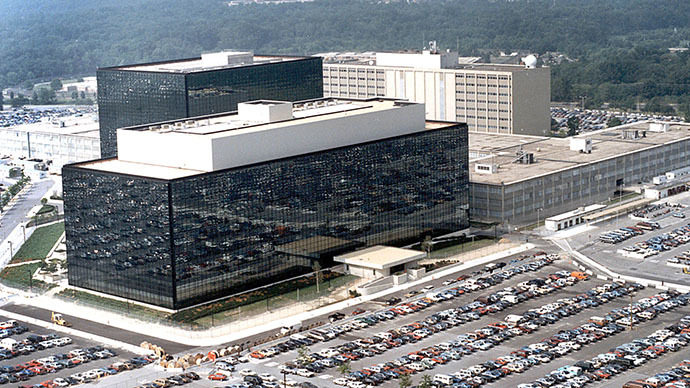
The NSA's spy program allegedly targeted the communications of the Brazilian and Mexican presidents, US journalist Glenn Greenwald, who first published secrets leaked by Edward Snowden, has reported. It's not clear whether the spying still goes on.
Guardian reporter Greenwald, who lives in Rio de Janeiro, told
Globo's news program ‘Fantastico’ that a document dated June 2012
shows that Mexican President's emails were being read through a
month before Enrique Pena Nieto was elected. In his
communications the then-presidential candidate indicated who he
would like to appoint to some government posts.
Meanwhile, as for Brazil's President Dilma Rousseff, the document
Greenwald refers to "doesn't include any of Dilma's specific
intercepted messages, the way it does for Nieto…But it is clear
in several ways that her communications were intercepted,
including the use of DNI Presenter, which is a program used by
NSA to open and read emails and online chats," the journalist
told AP in an email.
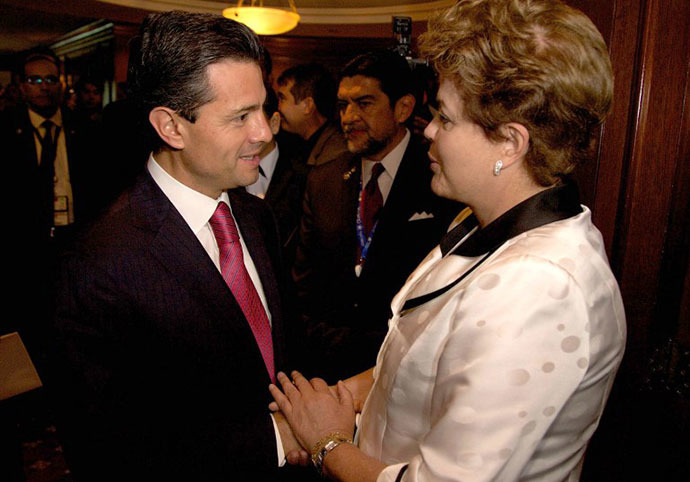
According to the document, the US not only targeted the aides with whom the Brazilian leader communicated, but also allegedly scrutinized schemes of how those aides communicated with each other and third parties.
In response, Brazil and Mexico summoned US ambassadors on Monday, demanding explanations over alleged NSA spying.
Brazil's Foreign Minister Luis Figueiredo stated that if the interception of data from President Dilma Rousseff were proven, then it would "represent an unacceptable and unallowable violation of Brazilian sovereignty", AFP reported.
Presidential secretary general Gilberto Carvalho was quoted by O Estado de Sao Paulo newspaper as saying that Brazil is in “an emergency situation due to these spying allegations.”
Also, the Brazilian Senate is planning to name a special committee on Tuesday to investigate the allegations.
Mexico sent a diplomatic note to Washington asking for an “an exhaustive investigation” into the claims, warning that if proven, it would be a "violation of international rights."
Greenwald’s report came, as Rousseff and Pena Nieto get ready to travel to Russia later this week for a G20 summit, where they will meet US President Barack Obama.
The Brazilian government decried the NSA activities revealed in
the earlier reports. In July, Greenwald co-wrote articles,
published in O Globo, claiming that some of the documents leaked
by Snowden indicated that Brazil was the largest target for the
NSA program in Latin America. According to Greenwald, the NSA
collected its data through an undefined association between US
and Brazilian telecommunications companies. However, the
journalist said he couldn't verify which Brazilian companies had
been involved or if they were even aware that their networks were
being used to collect the data for the NSA.
Last month Greenwald's domestic partner, 28-year-old Brazilian
citizen David Miranda, was detained for nine hours under Schedule
7 of the UK’s terrorism act when he arrived at Heathrow Airport
in transit to Berlin, on his way to Rio de Janeiro. Electronic materials, including computers and memory
sticks, were seized from him and he was threatened with prison if
he did not cooperate. Miranda was traveling after visiting a US
filmmaker Lauro Poitras, who has been working on the Snowden
files with Greenwald and The Guardian.
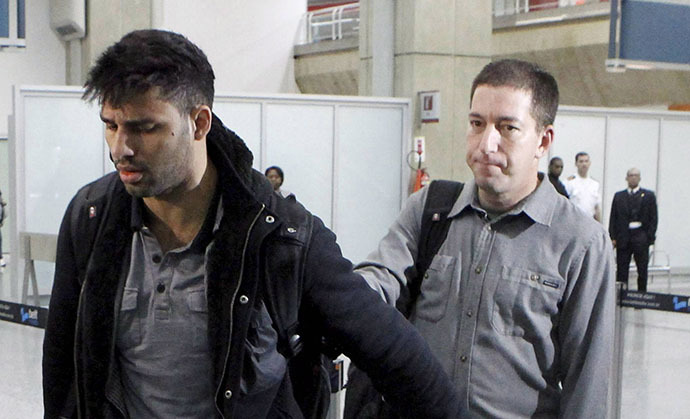
A security source told Reuters that Miranda’s detention was meant
to send a message to those who received Snowden’s classified
documents about how serious the UK is in trying to prevent
further leaks. After the incident, Greenwald pledged he was going
"to write much more aggressively than before" about
government snooping. The US released a statement saying that
British officials warned them about their decision to detain
Miranda, although Washington denied its own involvement.
Deputy national security adviser in the UK Cabinet Office Oliver
Robbins said that one file seized from Miranda included 58,000
"highly-classified UK intelligence documents," some of
them "highly likely to describe techniques crucial in life
saving counter-terrorist operations." Guardian editor Alan
Rusbridger dismissed the statement as containing "unsubstantiated
and inaccurate claims."
"The detention of Miranda has rightly caused international
dismay because it feeds into a perception that the US and UK
governments – while claiming to welcome the debate around state
surveillance started by Snowden – are also intent on stemming the
tide of leaks and on pursuing the whistleblower with a vengeance.
That perception is right," Rusbridger wrote in his article on August 19.
He also revealed that intelligence officials from the Government
Communications Headquarters (GCHQ) demanded the return or
destruction of files leaked by Snowden. UK authorities reportedly
raided the Guardian’s office in London to destroy hard drives to
stop future publications of leaks from the former NSA contractor.
After Rusbridger refused to hand over the documents, government
officials watched as computers which contained classified
information passed on by Snowden were physically destroyed in one
of the newspaper building’s basements.













